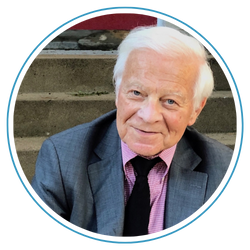For those who pay attention, psyche’s agenda is endless. Presently, I see several men and women who are between 65 and 80 and I have noted some interesting phenomena. Those who handle the aches, the losses of the older years are those who have lived the richest, most risk-taking lives. Those who have not, are more often caught up in fear, regret, remorse, and a vague dread. It is not enough to say they dread dying; rather, they more profoundly dread not having lived first.
Another phenomenon I have observed is even most interesting. So many of the dreams of these persons review their journey, bringing different stages, different people associated with each stage, sometimes even different geographies together in the same dream. Why might our psyche do that? Invariably, it brings up old associations, forgotten places, times, people…. Since we know that our psyche is this meaning-making, meaning requiring organ, and I suspect that the reason for this stirring of our histories is for more than addressing unfinished business, though it may also include that. I think this is how our psyche sorts and sifts, and helps us begin to identify the threads that run through our narratives, perhaps help us make more and more sense of what engines have been driving our lives.
Perhaps to illustrate such an exploration, let me turn to that poet of the depths, Rilke, as he recalls images from his childhood, and allows their widening circles to amplify and stir a trans-personal awareness of our common condition. He employs a metonymy, the game of “ball” to conjure up those past hours, linking us to the greater mystery in which they, and we, all swim.
The poem is from his Sonnets to Orpheus series, and is my translation:
Oh you few, you playmates of long ago,
Amid the scattered gardens of the past,
How we circled, shyly approached each other,
Communicating without words.
Joy was our common ground, but how joy
Fled before all the gathering forces
In the anxious years to follow.
Strange coaches clattered around us,
Houses loomed, large, phantasmal,
And no one knew our names.
What was real in all that?
Nothing…only the balls, their glorious curves,
Not even the children…for, alas, sometimes one of them…
O Ephemeral, would step beneath the falling ball.
What comes up for you, when you reflect on those days? Where are those playmates? Who were they? Where are they? They are still alive in our psyches even though we have not seen them in decades, or even thought directly of them.
What images rise from those days for you? Those images serve as metonymies, whereby a particular image intimates a larger, often unapproachable, inexpressible experience or atmosphere.
What persists for you from those days, what “stories,” what fragmental narratives do you carry still, like splinters beneath the flesh which wish to work their way through to the surface? As a character in a Faulkner novel put it, “the past isn’t dead; it’s not even past.” How is that past activated in, and influencing, our present lives?
(Personally I have learned, and I am not always happy about this, many of the generative energies within me, the complexes, the wounds, the avoidances, keep showing up when I think I have left them far behind. This shows me the staying power of some of those energy clusters, and how, for good or ill, they operate autonomously).
Since nothing that we have ever experienced has wholly left us, what do these shards of history make us do, even today, or keep us from doing? If we wish to understand ourselves, even gain a greater measure of freedom, then we have to bring these “stories” into greater conscious life. How can we ever choose freely if we don’t know all the players on our inner field?
As we sort through these shards of experience the psyche keeps throwing up charged images into our dreams, our impulsive choices, and repetitive behaviors. There is more than enough work here, sorting through this mélange of images, this debris-strewn history, to keep us busy for the rest of our journeys. Again, this is not in service to nostalgia, or a desire for an earlier time; it is essential to figuring out now what continues to create our history, a history in which we are often unconscious, unwitting partners.
Sign up for Dr. Hollis' poetry course, Quartet: Reflections on Life, Death, and the Troubles In-Between starting Tuesday, February 1st!
REGISTER HERE

James Hollis, Ph.D. was born in Springfield, Illinois, graduated from Manchester University in 1962 and Drew University in 1967. He taught Humanities 26 years in various colleges and universities before retraining as a Jungian analyst at the Jung Institute of Zurich, Switzerland (1977-82).
He is presently a licensed Jungian analyst in private practice in Washington, D.C. He served as Executive Director of the Jung Educational Center in Houston, Texas for many years and now is Executive Director of the Washington Jung Society. He is a retired Senior Training Analyst for the Inter-Regional Society of Jungian Analysts, was first Director of Training of the Philadelphia Jung Institute, and is Vice-President Emeritus of the Philemon Foundation.
He lives with his wife Jill, an artist and retired therapist, in Washington, DC. Together they have three living children and eight grand-children.
He has written a total of fifteen books and over fifty articles. The books have been translated into 20 languages
You can find a list of his books HERE
